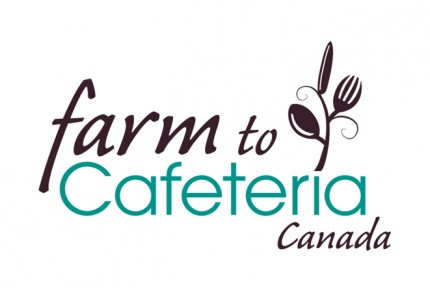Webinar: Local Food Procurement Policy and Free Trade Agreements
Posted: April 12, 2013
Categories: Food in the News / GoodFoodBites / Local Procurement / News from Sustain Ontario / Webinars
 Local Food Procurement Policy and Free Trade Agreements
Local Food Procurement Policy and Free Trade Agreements
Join us on Tuesday April 16, 2013 at 3pm EDT for this month’s “Dig In” webinar, part of Farm to Cafeteria Canada‘s “Dig In” webinar series, organized in cooperation with Sustain Ontario. Register now!
 Webinar Description
Webinar Description
During this webinar food procurement and trade policy experts from Western and Central Canada – Ken Babich and Kyra Bell-Pasht – will reflect upon a variety of free trade agreements,, including The Agreement on International Trade and the Canada and European Union Comprehensive Economic and Trade Agreement (CETA). These agreements will be discussed in the context of how they impact local food procurement strategies at different levels of government, and through public institutions, and what the opportunities and limitations are for supporting these strategies.
Ken will be discussing how public institutions are not prevented from acquiring locally grown products for use in food services operations, as may appear to be indicated by the public institutions. As well the AIT, NWPTA, CETA and PPT agreements specifically enable local procurements where the products are being acquired for re-sale. This includes hospitals, as the costs of food is provided for in the daily hospital stay charges that are paid by MSP.
Kyra will be providing a brief overview of the obstacles presented by current and pending trade agreements for local food procurement in Ontario. Bearing these in mind, opportunities for increased local food procurement will be considered based on current practices in Ontario and other jurisdictions subject to similar trade agreement restrictions.
This webinar will be held Tuesday April 16, 2013 at 3pm and will be 40 minutes long. Register now!
Ken Babich’s Bio
 Ken S. Babich, BCom, CPPO – After a stellar career in the public sector Ken leads his professional procurement and contract management practice through his firm, Professional Procurement and Management Consulting Inc. Prior to August, Ken was the Director, Purchasing Services at the University of Victoria.
Ken S. Babich, BCom, CPPO – After a stellar career in the public sector Ken leads his professional procurement and contract management practice through his firm, Professional Procurement and Management Consulting Inc. Prior to August, Ken was the Director, Purchasing Services at the University of Victoria.
Ken holds a degree in Commerce and Business Administration, and an Executive Management Certificate from the University of Alberta. He holds lifetime certification as a Certified Public Purchasing Officer (CPPO) through the Universal Public Procurement Coordinating Council, an internationally recognized public procurement certification organization.
Ken introduced and implemented NIGP’s ProD program in Western Canada and is a Certified Master Instructor for UPPCC’s professional certification program for the “Professional Buyer (CPPB)” and “Purchasing Manager (CPPO) designations. Ken co-authored the core textbook “Sourcing in the Public Sector” (second edition in 2008) for NIGP’s LEAP certification program, and bachelor’s degree program in Public Procurement through Florida Atlantic University.
Ken serves on the Board of the Canadian Public Procurement Council, is a member of the Canadian Supply Chain Sector Council, National Accreditation Panel, and Marketing and Communications Committee. In July 2012, Ken was appointed to the Advisory Board with Farm2Cafeteria Canada. He served as the Canadian representative on NIGP’s Board of Director’s from July 2002 to July 2006 and is the Past President of the Cascadia, Assinaboia, and Canada West Chapter of NIGP. Ken volunteers for the Junior Achievement Economics For Success” program on Vancouver Island.
Kyra Bell-Pasht’s Bio
 Kyra Bell-Pasht is an environmental lawyer at the Canadian Environmental Law Association. Among other public interest environmental law issues, her work focuses on the environmental implications of international trade and investment agreements. Kyra recently did a webinar for Sustain Ontario as part of our Policies from the Field series presenting her paper, “Possibilities for Local Food Procurement: Trade Agreement Restrictions & How Other Jurisdictions Have Avoided Them.” Kyra was also a Project Counsel at CELA in preparing a model local food act.
Kyra Bell-Pasht is an environmental lawyer at the Canadian Environmental Law Association. Among other public interest environmental law issues, her work focuses on the environmental implications of international trade and investment agreements. Kyra recently did a webinar for Sustain Ontario as part of our Policies from the Field series presenting her paper, “Possibilities for Local Food Procurement: Trade Agreement Restrictions & How Other Jurisdictions Have Avoided Them.” Kyra was also a Project Counsel at CELA in preparing a model local food act.
2 responses to “Webinar: Local Food Procurement Policy and Free Trade Agreements”
Leave a Reply
You must be logged in to post a comment.

This promises to be an EXCELLENT session. Cant wait to hear from these two speakers and their reflections from the west and central Canada (our provincial trade policies differ – so approaches need to differ).
Joanne Bays
National Manager
Farm to Cafeteria Canada